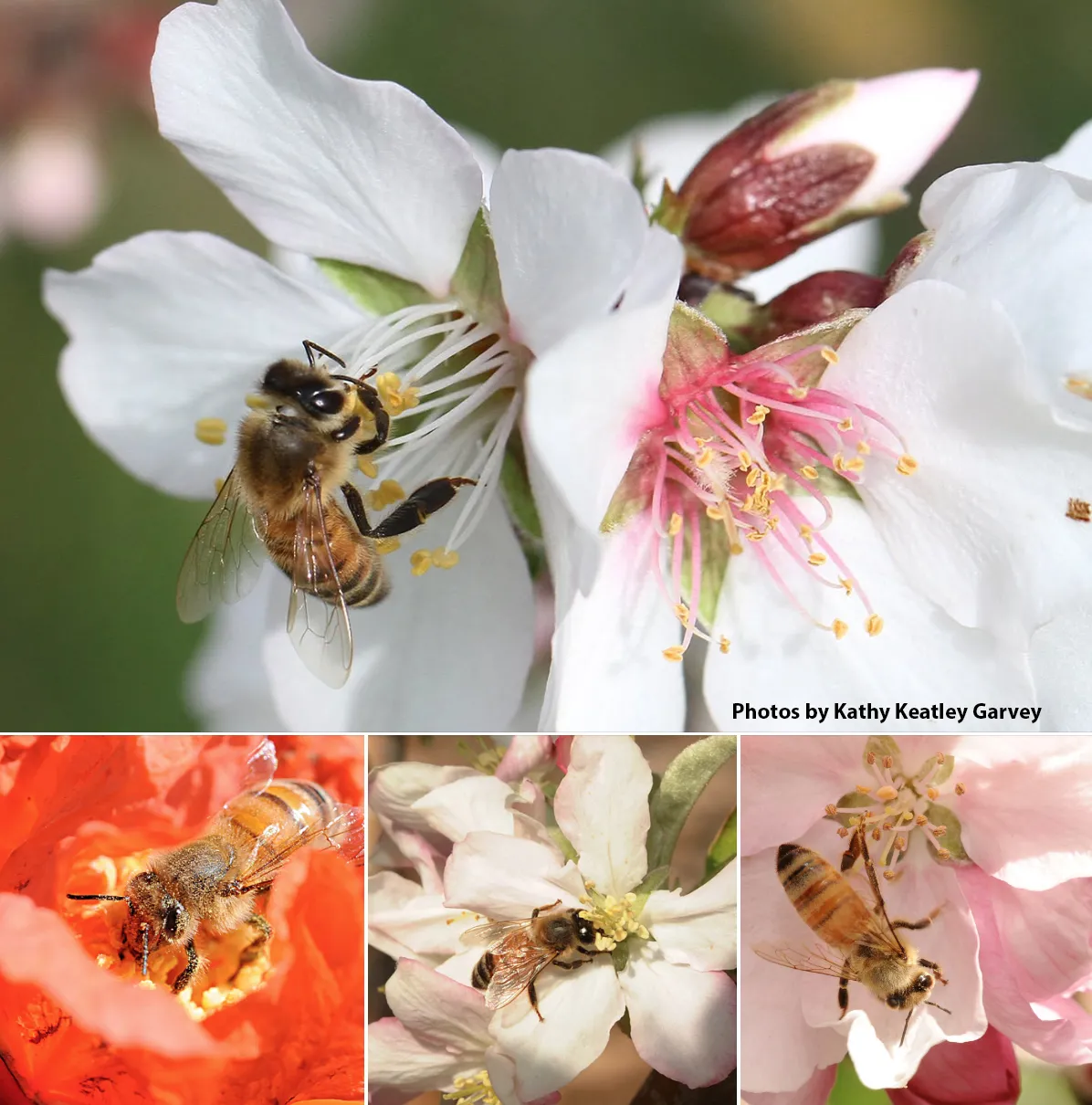What's Buzzworthy?

If you missed it, World Honey Bee Day was Aug. 16.
But, frankly, it's a day that should be observed every day, not just the third Saturday in August.
The celebrated day appears on the National Day Calender as "The day (that) recognizes both the honey bee and the beekeepers who tend the hives. It also encourages everyone to enjoy and buy locally grown honey. World Honey Bee Day is a day to learn about honey bees!"
World Honey Bee Day began as National Honey Bee Day in 2009 when Secretary of Agriculture Thomas J. Vilsek issued the proclamation. "The day grew rapidly bringing awareness to the benefits and environmental needs of honey bees," according to the National Day Calendar.
So, how can you continue to celebrate?
- The California State Beekeepers' Association today announced that its annual conference is set for Nov. 18-20 at Pechanga Resort Casino in Temecula, Calif. (Registration and details: californiastatebeekeepers.com/convention/. Their motto is "Protecting bees, supporting beekeepers and feeding the world."
- The UC Davis Bee Haven, a half-acre bee demonstration garden installed in the fall of 2009, is open to the public daily from dawn to dusk, free admission. It's at 1 Bee Biology Road, next to the Harry H. Laidlaw Jr. Honey Bee Research Facility, UC Davis campus. Parking is free on weekends, and free for the first hour on weekdays. The Haven includes more 200 native plants. UC Davis Distinguished Professor Emeritus Robbin Thorp (1933-2019) detected and identified more than 80 native bees in the garden. Note that California is home to 1600 species of native bees. Director of the Haven is bee scientist Elina Niño, professor of apiculture, UC Cooperative Extension, and on the faculty of the UC Davis Department of Entomology and Nematology (ENT). She founded and directs the UC Davis-based California Master Beekeeper Program. Note: The Haven is hosting a Volunteer Day on Saturday, Aug. 30 from 8 to 11:30 a.m. Register at beehaven@ucdavis.edu (the same email to sign up for The Haven's newsletter. Samantha Murray serves as the education and garden coordinator.
- The California Master Beekeeper Program offers courses for beekeepers and one course especially for bee enthusiasts (be a Bee Ambassador!). UC Davis bee scientist Elina Niño (see above), founded CAMBP in 2016 and continues to serve as its founding director. CAMBP offers science-based information to educate stewards and ambassadors for honey bees and beekeeping. It provides "provide science-backed, practical training informed by the latest research and industry best practices." It's a train-the-trainer kind of program offering classes. Beekeepers can advance from the Apprentice level to the Journey and Master levels. .See more on its website.
And what's buzzworthy about bees? Their indispensable role as pollinators, supporting about a third of the world's food supply, their ability to produce honey and other valuable byproducts, and their complex social structures and sophisticated communication, such as the "waggle dance." Their importance extends to maintaining biodiversity and supporting ecosystems, but a significant concern is the decline of bee populations due to habitat loss and pesticides.
